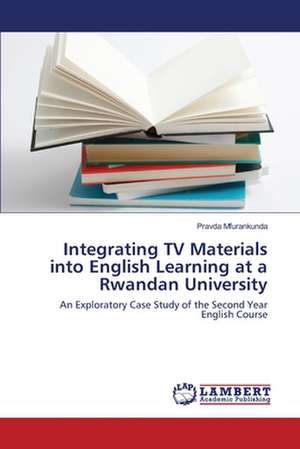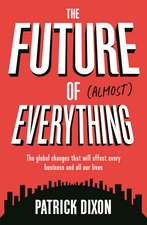Integrating TV Materials into English Learning at a Rwandan University
Autor Pravda Mfurankundaen Limba Engleză Paperback – 25 aug 2012
Preț: 325.15 lei
Nou
Puncte Express: 488
Preț estimativ în valută:
62.23€ • 64.28$ • 51.79£
62.23€ • 64.28$ • 51.79£
Carte tipărită la comandă
Livrare economică 25 martie-08 aprilie
Preluare comenzi: 021 569.72.76
Specificații
ISBN-13: 9783659179259
ISBN-10: 3659179256
Pagini: 112
Dimensiuni: 152 x 229 x 7 mm
Greutate: 0.18 kg
Editura: LAP LAMBERT ACADEMIC PUBLISHING AG & CO KG
Colecția LAP Lambert Academic Publishing
ISBN-10: 3659179256
Pagini: 112
Dimensiuni: 152 x 229 x 7 mm
Greutate: 0.18 kg
Editura: LAP LAMBERT ACADEMIC PUBLISHING AG & CO KG
Colecția LAP Lambert Academic Publishing
Notă biografică
Pravda Mfurankunda is a lecturer at the National University of Rwanda. He holds a B.A in English language and Literature and an M.Ed in Applied Linguistics and Language Education. He is currently exploring as part of his PhD research the inter-relationships between English language learning, identity construction and digital practices in Rwanda.











